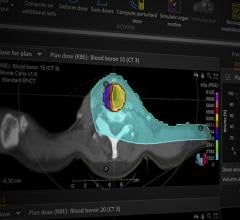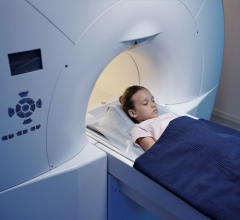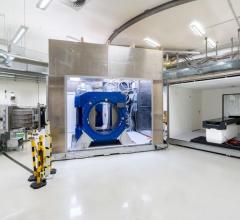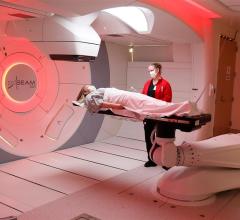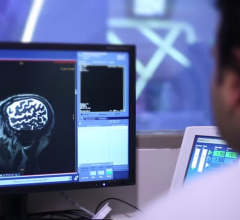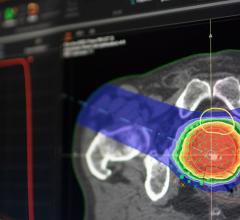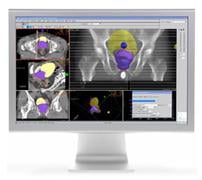
April 4, 2011 – The Paul Scherrer Institute (PSI) in Switzerland and Elekta are collaborating to further develop treatment planning and oncology information systems (OIS) for proton therapy. Proton therapy is a form of external beam radiation that uses protons instead of X-rays or electrons to treat certain types of cancer and other diseases.
PSI integrated Elekta's XiO treatment planning system and MOSAIQ OIS into its Centre for Proton Therapy to manage the flow of information and image data between treatment delivery, treatment planning, treatment simulation and the patient's electronic medical record.
The company recently received 510(k) clearance from the U.S. Food and Drug Administration (FDA) for XiO to plan spot scanning. Spot scanning a proton therapy delivery method that involves constructing a highly conformal placement of dose to the tumor by using thousands of small individual beamlets instead of a single large beam.
"Through XiO, Elekta provides a combination of advanced tools for scanned proton beam therapy. Elekta also provides a clear road map to further develop intensity modulated, image guided and adaptive proton therapy," said Antony Lomax, Ph.D., professor and head of medical physics at the Center for Proton Therapy at PSI. "A deciding factor in entering into this relationship was Elekta's willingness to leverage the significant experience of our team to increase the capabilities of XiO proton planning."
MOSAIQ is designed to support different types of radiation systems and modalities, including proton and carbon ion therapy, intensity modulated radiation therapy (IMRT), image guided radiation therapy (IGRT) and volumetric modulated arc therapy (VMAT).
The Centre for Proton Therapy at PSI pioneered scanning beam proton therapy, and treated its first patients with this approach in 1996. Subsequently, PSI upgraded this treatment modality to deliver intensity modulated proton therapy (IMPT), treating its first patient with this technique in 1999.
"Radiation therapy is evolving rapidly in many areas, thanks in large part to innovations in intensity modulation, image guidance and workflow enhancing information management systems over the last decade," said Stewart Pegrum, director particle therapy, Elekta. "Elekta has driven most of these improvements on the linear accelerator, as centers such as the Paul Scherrer Institute have advanced the discipline of proton therapy. Our collaboration with PSI focuses on combining technological advances in conventional radiation therapy and proton therapy to create the best possible therapeutic solution. We firmly believe that both Elekta and its customers can substantially benefit from this collaboration as PSI is one of the leading institutions in the field of proton therapy."
For more information: www.elekta.com

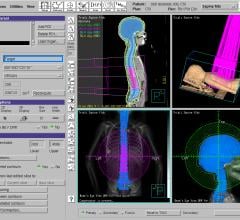
 May 06, 2024
May 06, 2024 
